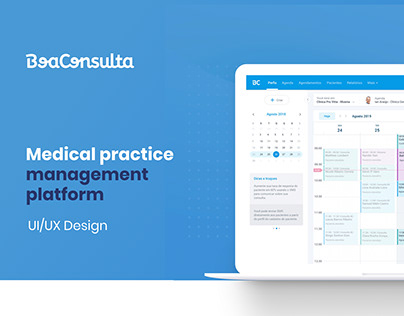Within the current rapidly evolving healthcare landscape, the requirement for effective and effective administration of healthcare practices has never more essential. While administrative challenges continue to mount, practitioners are increasingly shifting to digital tools to streamline operations and improve patient care. Medical practice management software has emerged as a revolutionary tool, enabling practices to enhance their processes, lower costs, and boost their overall performance.
Through automating various functions such as appointment scheduling, billing, and patient communication, this software empowers healthcare professionals to focus on what truly matters: delivering high-quality care to their patients. The adoption of digital tools not only boosts efficiency but also contributes to a healthier bottom line, which makes it easier for practices to succeed in a competitive landscape. As we examine the benefits of medical practice management software, it becomes clear that adopting technology is no longer just an alternative; it is a requirement for modern healthcare practices.
Benefits of Practice Management Software
Management software for practices plays a vital role in improving the efficiency of medical practices. By streamlining administrative processes such as managing appointments, keeping track of patient records, and invoicing, this tool reduces the hours staff spend on manual tasks. This automation not only streamlines operations but also lowers the chances of human error, ensuring that patients receive quick and accurate information regarding their care.
Furthermore, practice management software enhances patient engagement and contentment. Features such as patient portals allow patients to get their health data, schedule appointments, and communicate with healthcare providers efficiently. The convenience of these features motivates patients to take an proactive role in their healthcare journey, leading to improved compliance to treatment plans and lowered no-show rates for appointments, ultimately benefiting the practice's financial well-being.

In addition to operational successes and enhanced patient involvement, practice management software provides important insights through data analysis. By tracking key performance KPIs, practices can recognize trends, measure efficiency, and make data-driven decisions to improve their services. This data-driven approach allows healthcare providers to adapt their strategies, leading to enhanced resource management and a stronger bottom line.
Key Features to Look For
When choosing medical practice management software, one of the most crucial features to take into account is appointment scheduling. An efficient scheduling system minimizes appointment double bookings and enhances patient satisfaction by enabling for simple rescheduling and reminders. Look for software that includes an user-friendly interface for staff as well as patients, as well as the ability to manage several calendars, which is necessary for practices with several healthcare providers.
Another crucial feature is billing and coding capabilities. The optimal medical practice management software should optimize the billing process by including automated billing, claims submissions, and insurance verifications. This not only reduces errors but also accelerates cash flow, allowing your practice to focus on offering quality patient care instead of being overwhelmed by administrative tasks. A platform that provides coding suggestions and updates can help ensure compliance with the most recent regulations.
Data analytics and reporting functions are also important for optimizing practice performance. Look for software that includes customizable reports on key performance indicators such as patient volume, revenue cycle, and employee productivity. medicloudmed.ch will enable your practice to identify areas for improvement and make data-driven decisions that can lead to enhanced efficiency and profitability. A robust dashboard that improves data visualization can significantly enhance your ability to track and respond to practice metrics in live time.
Deploying Technology in Your Healthcare Facility
If you are considering the adoption of clinical software, it is crucial to evaluate your specific needs and goals. Start by evaluating the current workflows in your practice and pinpointing areas where software could create efficiencies. This could include appointment management, billing, or client communication. Consulting with staff members in this process can provide critical insights, as they are the ones who will interact with the software on a regular basis.
Once you have a clear understanding of your requirements, investigate and select a software that fits with your practice's objectives. Seek out features that improve client experience, simplify operations, and improve monetary performance. Make sure that the selected software is intuitive and supported by robust customer service, so your team can easily adapt to the updated system. Take advantage of demo versions or demos offered by software providers to make informed decisions.
After selecting the appropriate medical practice management software, implementing it effectively is essential for realizing the expected benefits. Develop a comprehensive training plan for your team to make sure they are confident using the updated system. Schedule routine check-ins to resolve any issues and gather input for ongoing improvement. By cultivating a culture of adaptability and providing proper support, your facility can fully leverage the capabilities of the system to enhance operational efficiency and increase its bottom line.
